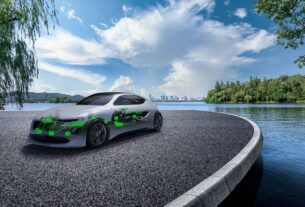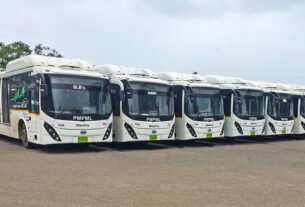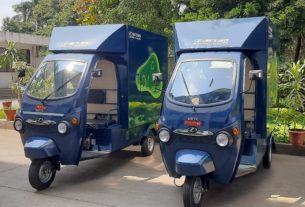The new-gen electric car that sits on a fresh ‘CMF-EV’ architecture will be offered either as front or AWD (e-4ORCE), with a pair of battery options and a host of electric motor performances for the buyers to choose. Pricing starts around $40,000 (US market), to rival the upcoming Volkswagen ID.4 and Skoda Enyaq electric cars.
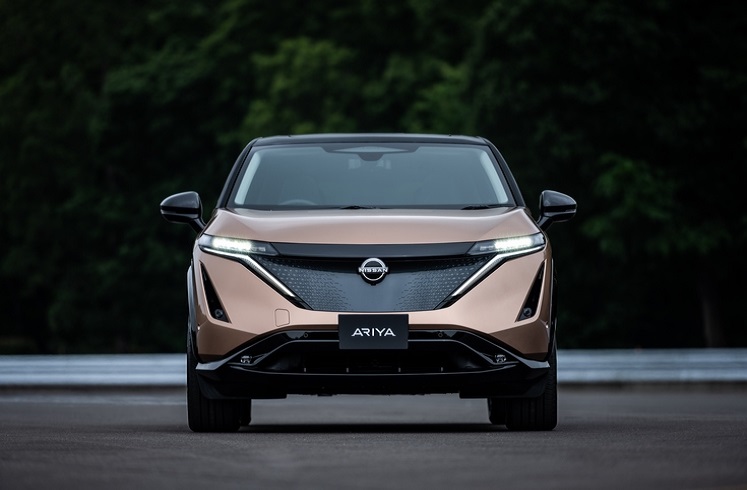
Nissan has revealed its much-awaited ‘Ariya’ all-electric crossover SUV perhaps the first premium electric SUV developed in sync with the likes of new age buyers by a brand known for its huge EV image globally! What took you so long, Nissan?? Claimed to target a driving range of over 300 miles (482 kms), the Nissan Ariya demonstrates the company’s advanced electrified, autonomous, and connected technologies to offer top-notch EV experience to the buyers. The EV is scheduled to go on sale in Japan by mid-next year, followed by US, Canada, and Europe, according to the automaker. To start with, the car will be manufactured in the company’s Tochigi plant in Japan.
Taking a huge leap from the strengths of the Nissan Leaf EV – one of the world’s first mainstream electric car – the new Ariya tries to combine high performance with sophisticated connected and driver assist technologies for the users to offer a premium experience. It’s design and styling seems to hint at the car’s evolutionary experience from the Leaf EV, but the coupe-ish silhouette, floating roof-line, ultra-slim LED headlamps, ‘shield’ grille, and a ‘light blade’ tail lamp concept, along with other key detailing, makes the car contemporary – but also revolutionary for the Japanese brand!
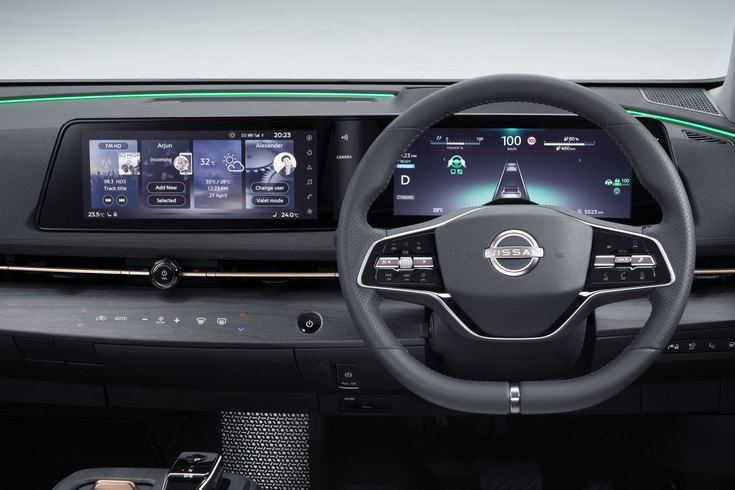
Further, there are huge surprises in the ‘interiors’ department as well. The Ariya’s dashboard layout is essentially futuristic, thanks to a pair of 12.3-inch screens that acts as instrumentation panel and the adjacent centre console in conventional sense, along with haptic touch-sensitive controls all over the use of plush materials across the cabin. The flat floor seems to make the cabin spacious, while the ‘zero-gravity seats’ claims to provide a welcoming and comfortable environment for driver and passengers alike.
The five-seater crossover is 4.59 metres long, something similar to a Nissan Qashqai or an X-Trail, with a wheelbase of 2.77-metres – a bit longer than its conventional siblings. The Nissan Ariya underpins the newly-developed modular ‘CMF-EV’ platform by the Renault-Nissan-Mitsubishi Alliance for pure-electric vehicles, which benefits from a large wheelbase and a flat floor. The modular layout also helps to integrate an additional motor in the rear axle for the AWD variant.
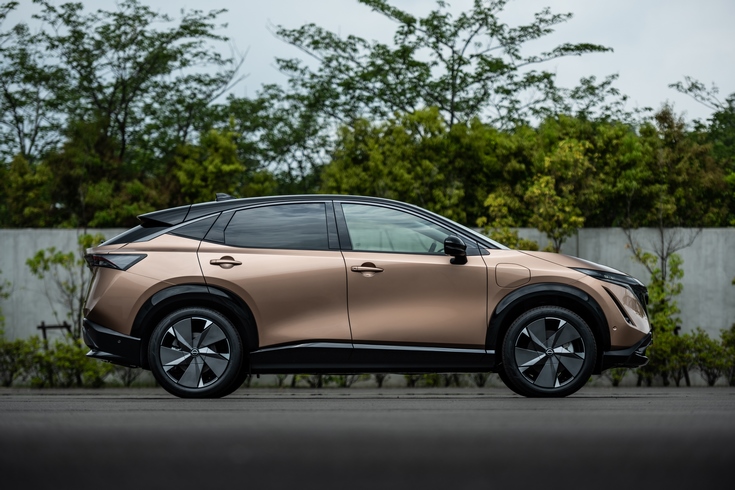
The Nissan Ariya range will be offered with a choice of two battery sizes – 65 kWh and 90 kWh. It is learned that the prismatic Lithium NMC-type battery packs used in the car is sourced from the Chinese supplier CATL. While the base trim with front wheel drive is expected to use externally excited synchronous motor (EESM) to generate 160 kW/ 178 kW power and 300 Nm of torque depending on the battery size, the AWD e-4ORCE variants will be generating 250 kW/ 290 kW power and 560 Nm/ 600 Nm of torque respectively. As far as driving range is concerned, the FWD variant with 90 kWh battery is likely to offer an extended driving range of up to 610 kms, while the AWD variant with the same battery may offer 580 kms max.
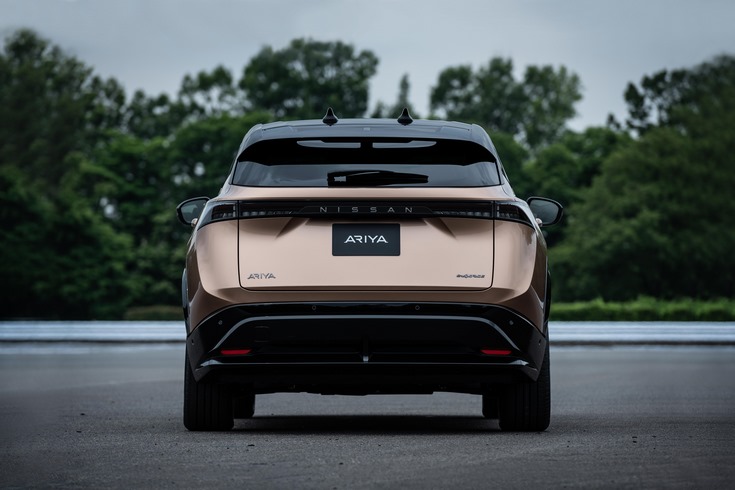
As far as charging options are concerned, the Ariya will be equipped with a 7.2 kW onboard charger for AC home charging, while the car can also be recharged on speeds up to 130 kW on a DC fast charger using a standard CCS charging system. Further, the car will be offered with a host of ADAS (Advanced Driver Assistance Systems) including the next-generation P’roPILOT Assist 2.0′ that uses driver attention monitoring to enable hands-off single-lane highway operation and e-Pedal to enable the driver to start, accelerate and decelerate using only the accelerator pedal.
In addition, ‘Nissan Safety Shield 360’ is also in place, which includes automatic emergency braking with pedestrian detection, lane departure warning, and blind spot warning among others. The car will also feature over-the-air-updates using 4G connectivity for all key functions of the car – from chassis and EV settings to infotainment updates including that of Apple CarPlay and Android Auto.


